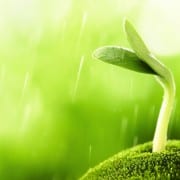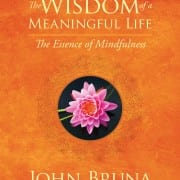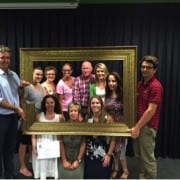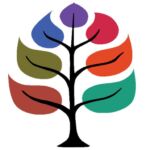Intention as a Seed for Action
It takes action to make meaningful change in our lives. And in order to make change in the direction we’d prefer, we have to water the seeds of the actions we want to practice. It’s been said that without a cause there is no result. But what is the cause of action? What is the seed of action?
Ralph Waldo Emerson is quoted as saying, “Thought is the seed of action.”
For some of us, if any and every thought leads to the seed of and action from that thought, it could be an unfortunate thing! I have had thought seeds I surely wouldn’t want to water and have them grow up into being real actions. You probably have too. I would venture to say we all have.
We have lots of thoughts of many kinds. In fact, our minds are continuously producing them without any help from us. We learn that well when we sit to meditate. It can feel like an avalanche of thoughts was unleashed as soon as we settled in. We have unintentional thoughts, but we can also direct our thoughts intentionally.
What is key is to recognize that actions that come from unintentional thoughts don’t always work out so well, unless we’ve cultivated really good habits of thought. Actions that come from intentional thoughts tend to be the kinds of actions that align more with our preferences and even our values.
What’s the use of intention without action? Or action without clear intention? Action without intention is like a ship without a caption. It’ll just be luck if it makes it to a safe harbor. Intention without action is a good first step, but doesn’t get us too far nor does it make an impact in our lives or the lives of others.
You may have heard the riddle that if there are three birds sitting on a fence and one decides to fly away, how many are left? Most people seem to quickly answer that there’s two birds left. But does just deciding to fly away make it happen? Just like deciding to get out and exercise more, or just deciding to be less reactive with a person you have difficulty with? It’s a good riddle for illustrating the fact that just deciding, or just setting an intention doesn’t insure follow through. It’s just a seed, and it may be a seed for something very beneficial. But a seed needs the right conditions and care to grow. And it needs to be watered regularly. Intention is surely a first step and a key factor. But action is where the rubber meets the road.
Intentions are also a wonderful and very useful way to check in on our actions. We can look back on our earlier intention and see how we’re doing, and see if we need a gentle course correction, or we could put some energy into renewing our intention. For example, when you first learned about mindfulness or the Mindful Life Program, did you have an intention for some kind of change? Were you looking to cultivate certain qualities, make a shift in how you live, or grow in some particular area? Were you looking to suffer a little less from an unruly and busy mind, or respond to challenges in your life in a healthier way? How can you water these intentions and have them lead to wise action and meaningful change?
Another useful way to look at intentions is with the lens of our values. Are our intentions aligned with our values? Or have we set some intentions to do some things or achieve some things that really, after some thoughtful reflection, don’t align when we really think about what a meaningful life is to us.
At the Mindful Life Program, we say often that a meaningful life is lived with attention and intention. Tied together with intention is attention. If we don’t cultivate attention, good luck staying focused on your intention, remembering it, and calling it to mind. Just as intention without action doesn’t get us far, having an intention, but not being able to attend to it, call it to mind, have the presence of mind to act on it also does not get us too far. One of the best ways to cultivate attention is shamatha or mindfulness of breath meditation, as it gives us practice in creating attentional balance and the ability to choose one thought over another.
I invite you to call to mind the aspirations, qualities or habits that you would like to develop in your life and choose one that you can take action on today. What action will plant a seed for that today? Set the intention to do what it takes to plant that seed today. Remember that while seeds are small, with good and regular care and conditions, they can become mighty. How can you take steps to nurture that seed today and over time?
“Your beliefs become your thoughts,
Your thoughts become your words,
Your words become your actions,
Your actions become your habits,
Your habits become your values,
Your values become your destiny.”
Mahatma Gandhi
© 2016 Mindful Life Program Inc







